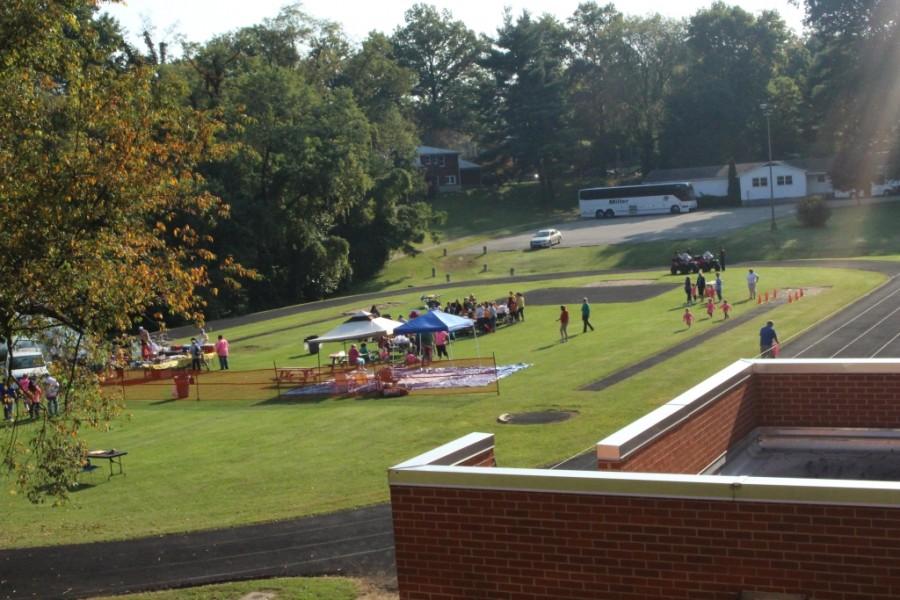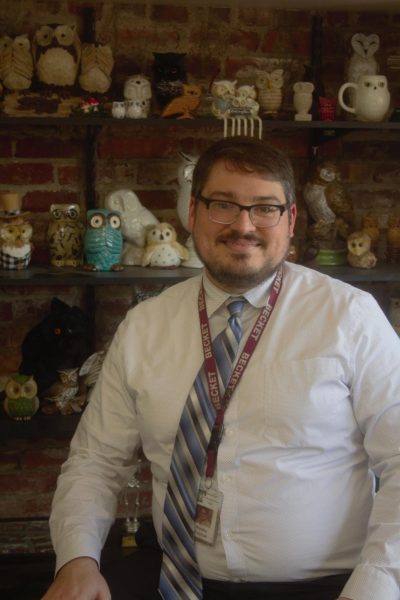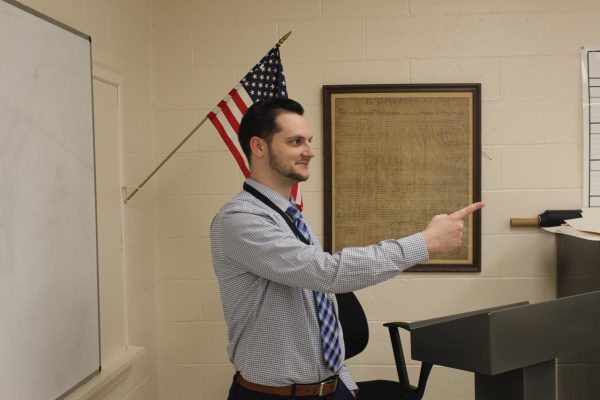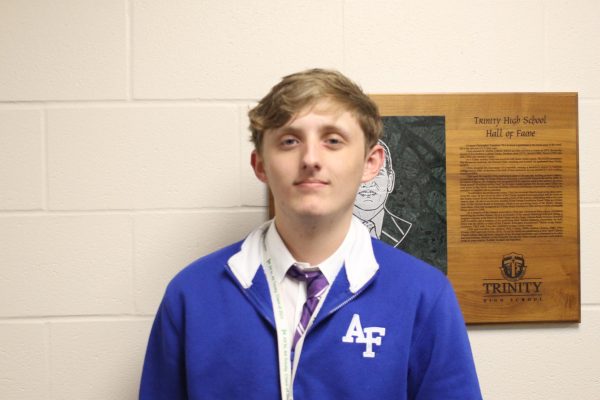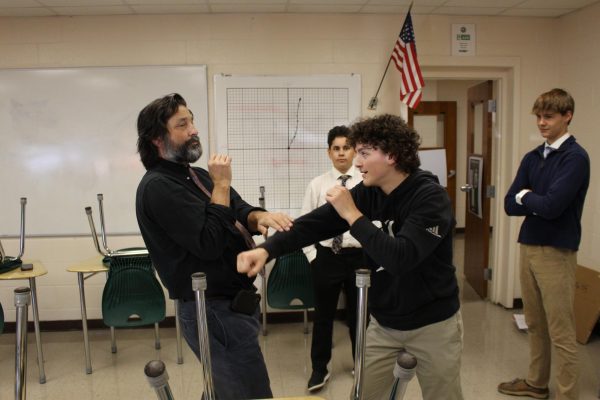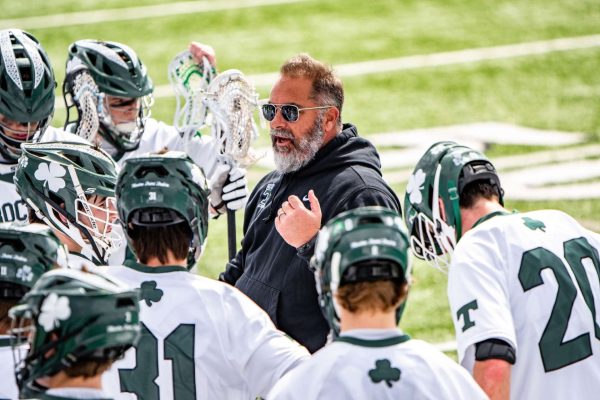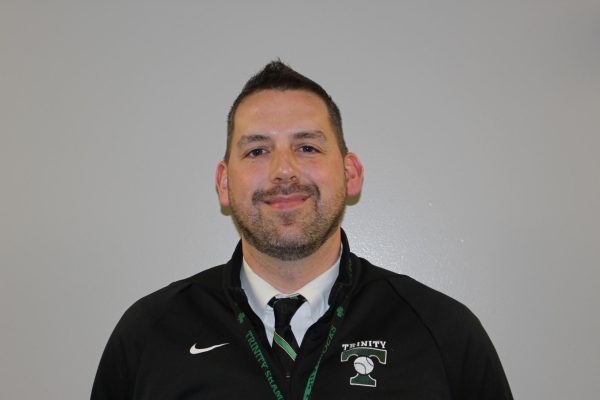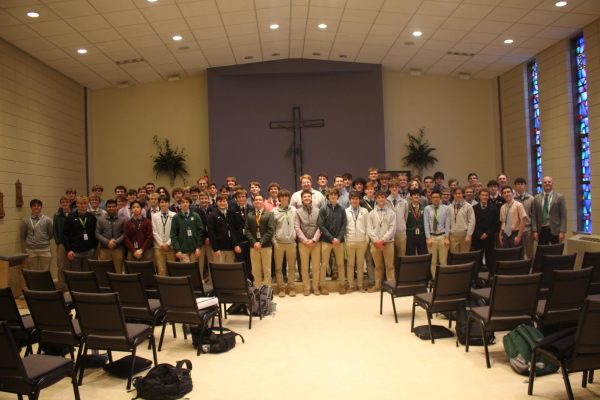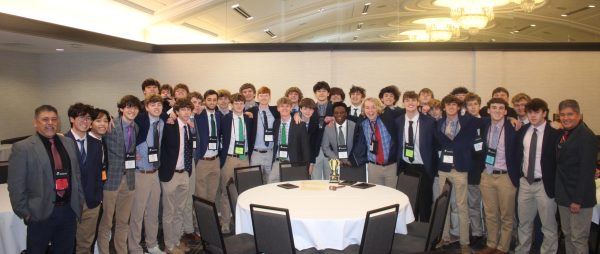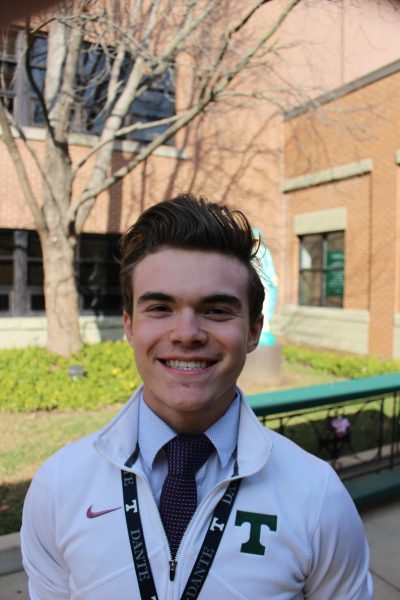Olympian Assistance from NHS Shamrocks
October 1, 2014
Fourteen Trinity National Honor Society members assisted at the Kentucky School for the Blind Special Junior Olympics today. The NHS members worked with middle-school students from several states.
NHS co-moderator Ms. Mary Ann Hall said, “It is a very moving experience and has been the NHS’s major project for many years.”
The following students helped: Kyle Bilyeu, Nathan Brown, Zachary Brumback, Ryan Cywinski, Joshua Dailey, Andrew Deye, Chris Laveck, Will Laveck, Steven Matheny, Daniel McCarthy, Derek Nafziger, Sam Rickert, Nolan Riley and Eric Schoen.
Ms. Connie Hill, a low-vision therapist for the Kentucky School for the Blind, gave some background on the the event. She said, “It stared here 38 years ago. The recreation director and the physical education teacher wanted to do some kind of competition to get the kids ready for varsity sports. Kentucky wanted to host it with the Indiana School for the Blind, so they did that for five years. Then they started adding Tennessee and Ohio gradually, and then added Jefferson County.”
Hill said the participants compete in various events: “shot put, softball throw, running long jump, standing long jump, 60-meter, 200-meter, 240-meter. The 240-meter is for kids who are totally blind. They use a guide wire as a guide. Then we have the 400-meter and the 200-meter tandem. That is a person who is non-sighted with a sighted person.”
The tandem and 240-meter guide wire race were particularly interesting. In the tandem race, the sighted and non-sighted participants held on to the same elastic band so they wouldn’t get separated.
Hill pointed out changes she has seen through the past 38 years. “We used to have more (competitors). The most we ever had was 280, and this year we had 140 kids participate,” she said. “Also, we have more volunteers. This year we had 130 volunteers.”
Riley, a junior who was one of the NHS volunteers, explained what he did to help the event: “I personally worked the shot-put station. I would measure the distance that the kids would throw the shot put and record it. And we handed out medals to them.”
Riley was impressed with the kids. He said, “The most interesting thing I saw here was just how the kids are still able to compete and how they still have a competitive aspect to them even though they can’t necessarily see, or process it as well as others can.”
Hall accompanied the NHS students on the trip. She recalled her most memorable moments after attending for more than a dozen years: “One young lady, she had to be five or six, went up to one of our students and put her arms around him and cried and thanked him. One of the parents came over and personally thanked me for having such gentlemen to help.”
Those kind of things brought touched Hall’s emotions. “It brings tears to your eyes; you may think it’s corny or silly but it’s not. They didn’t know us from anywhere, and they said they will always remember Trinity and how they made their sons smile.”

